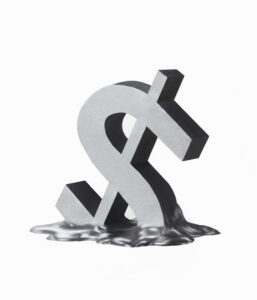Doing a periodic review of your credit card report and status is an essential task if you want to know exactly what is being charged to your card and make sure you keep a good credit score. Failing to do it so, could make you overlook any mistaken information that could eventually have a negative impact on your finances, something that frequently happens to many people. Maintaining a good credit card reputation is vital for you to keep counting on the bank of your choice and for them to be able to raise your limits and give more credit.
Having a bad credit reputation can affect you when asking for a loan, buying an insurance policy and even when applying for a new job, and your credit card affects it directly. Believe it or not, there are a lot of companies that check the credit references of their new employees before hiring them.
However, if you usually take a look at your banking history, it is likely that you will notice any possible inaccuracy on time or any unrecognized charges to your credit card. It is very important that you keep an eye on your expenses frequently so you can intercept and report these charges as soon as possible to avoid further loses.
The good news is that, although you do not have the authority to remove the wrong data of your credit card balance, you can do something to solve this problem. You can file a dispute over charges, which means that you can ask your bank to open an investigation for any information that you don’t acknowledge.
“It is very important that you keep an eye on your expenses frequently so you can intercept and report these charges as soon as possible to avoid further loses.”
There are three ways to dispute charges according to a bank. First, you can do it by making a call. Second, via email. In this case, it is essential that you ask for a return-receipt so you can make sure that your request is being handled. Finally, you can file a complaint by sending a letter. This requires writing a letter to your financial institution with the items in question highlighted. In addition, you must include the reasons why you are doing it and a copy of any document that supports your position. Banks also take into consideration if you had an insurance for these types of situations, which of course we encourage you to have.
Read also: Are there errors on my Credit Report?
Although a call or an email may seem like the easiest options, experts suggest that you keep a written record of all the actions you execute to create a documentation to turn to in case something goes wrong.
Once the complaint is made, the bank should contact the company that supplied the information and must respond within the next 30 days. If the data is not verified within 30 days, they must remove it from your credit card history.
While the procedure is being completed, you are not forced to pay the amount of money of the transaction in question or any other charges related to it, as is the case of interests. You may feel relieved to know that if you pay the card’s minimum amount before your due date—which is not being subjected to investigation— your bank will not consider this a delay in your payment history.
Read also: How to Read Your Credit Report
If the information you gave and explanation to the case is verified, it will stay on your record and your bank must notify you what happened, so it won’t happen again. If you disagree with the outcome, you may ask your bank to inform you how they led the research; who did they communicated with and you can add a statement expressing why you are objecting the results or why their answer didn’t satisfy you.
Certainly, disputing charges on your credit card that you didn’t do is an effective action to take. However, demanding this procedure may bring some disadvantages while the search is taking place, especially when asking for a loan.
For these reasons, it is better to try to get in touch with the company who gave the wrong information before initiating a process with your bank and see if they can revert the unauthorized transaction. Above all, the most important lesson that you must learn is to make a regular check of your credit card history so you can keep everything in order. If by any means you find inaccuracies, now you known that solving this problem is a simple task.









